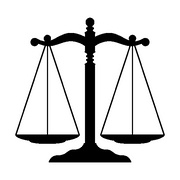
Far from being an indication of failure, filing for bankruptcy is often a smart way to regain your financial footing. This tool is designed to help those with insurmountable debts. However, you can’t simply run to a bankruptcy attorney every time you are feeling the heat from debt collectors. In fact, there are limits placed on how often you can file.
Requirements for Bankruptcy Filing
The two main types of bankruptcy are chapter 7 and chapter 13. With the former, your debts are discharged, or eliminated, more quickly. However, as any bankruptcy attorney will warn you, certain assets may be seized to pay off creditors, and the filing will remain on your credit report for up to 10 years.
 While chapter 7 bankruptcy prioritizes debt elimination, chapter 13 focuses on debt reorganization. Your debt is restructured into a more manageable payment plan. Once you have made a certain amount of payments—usually over a period of three to five years—the remaining debt is discharged. The filing remains on your credit report for seven years.
While chapter 7 bankruptcy prioritizes debt elimination, chapter 13 focuses on debt reorganization. Your debt is restructured into a more manageable payment plan. Once you have made a certain amount of payments—usually over a period of three to five years—the remaining debt is discharged. The filing remains on your credit report for seven years.
Limitations on Bankruptcy Filing
Chapter 7 and chapter 13 also differ in how frequently you can file each kind. After a chapter 7 discharge is granted, you cannot receive another one for eight years. After receiving a chapter 13 discharge, you are eligible to file again after only two years.
If you receive a chapter 7 bankruptcy and later want to file for chapter 13, you may do so after four years. Alternatively, if you file for chapter 13 and then want to file for chapter 7, you can do so after six years. In all cases, bankruptcy attorneys say the time period is counted from the day you filed your first case—not the date of the discharge.
Filing for bankruptcy is a complicated process. Even knowing which type to choose is tough. Fortunately, the bankruptcy attorneys of William A. McWhorter will help. Located in Pell City, AL, this law firm provides St. Clair County with top-quality legal services. Known for their compassionate approach to clients, they will provide you with the guidance you need. Find out more about their practice areas, from wills and estates to bankruptcy law, online. For an appointment, call (205) 338-4411.
About the Business
Have a question? Ask the experts!
Send your question

